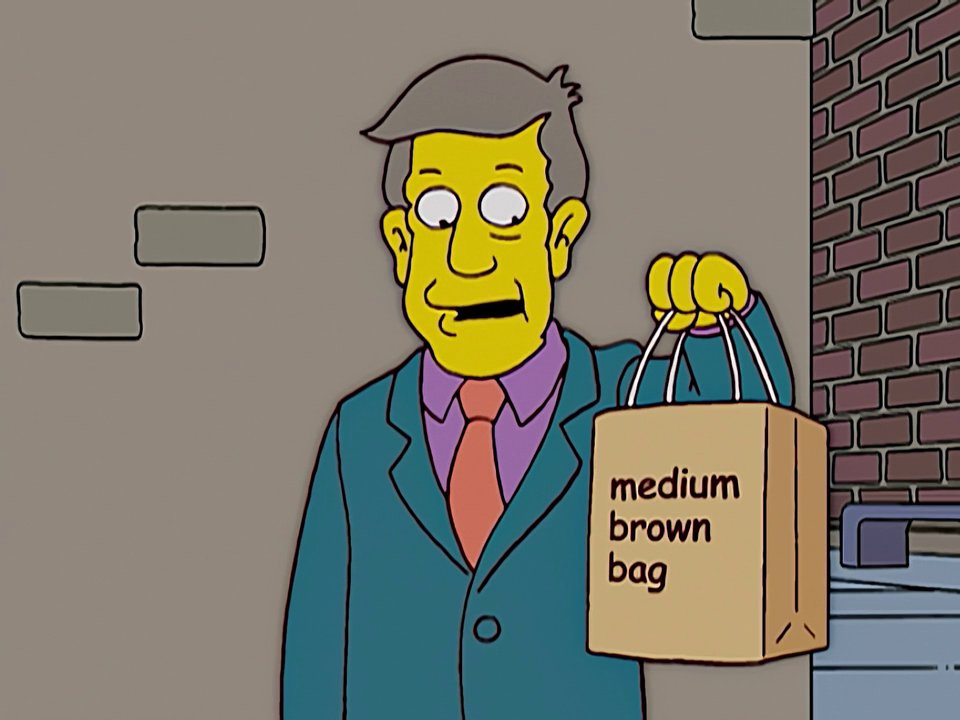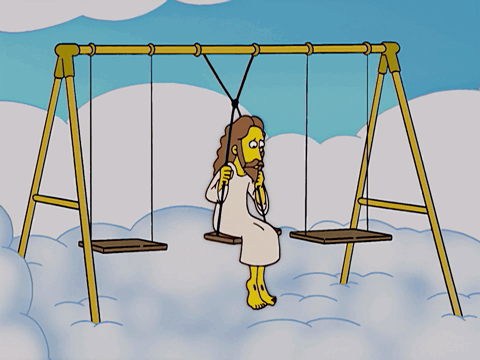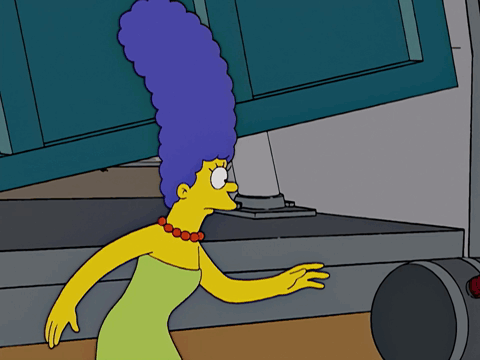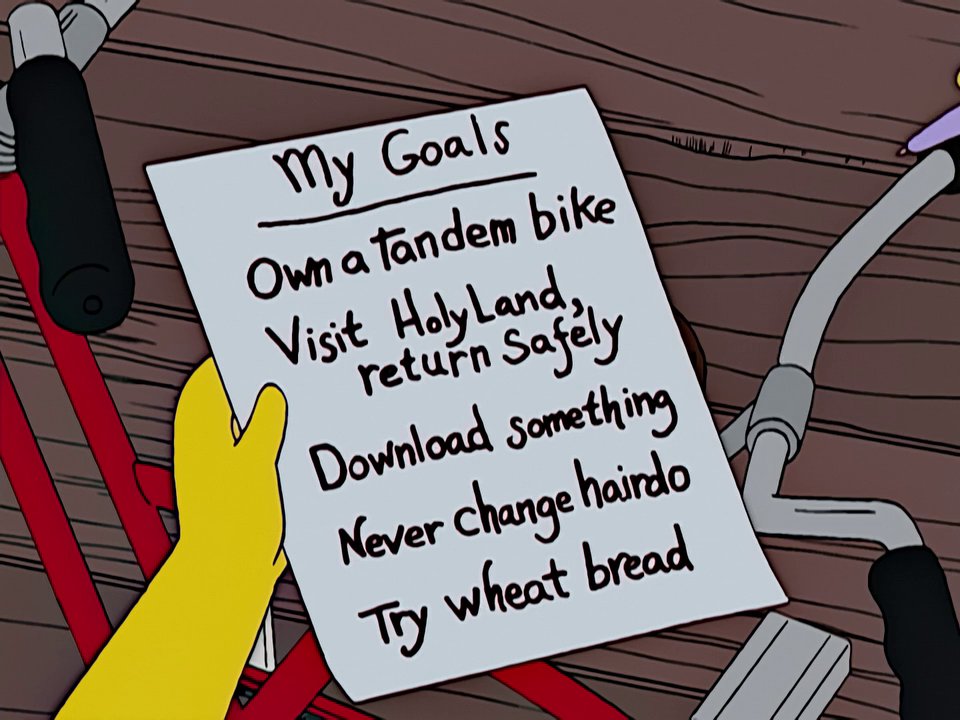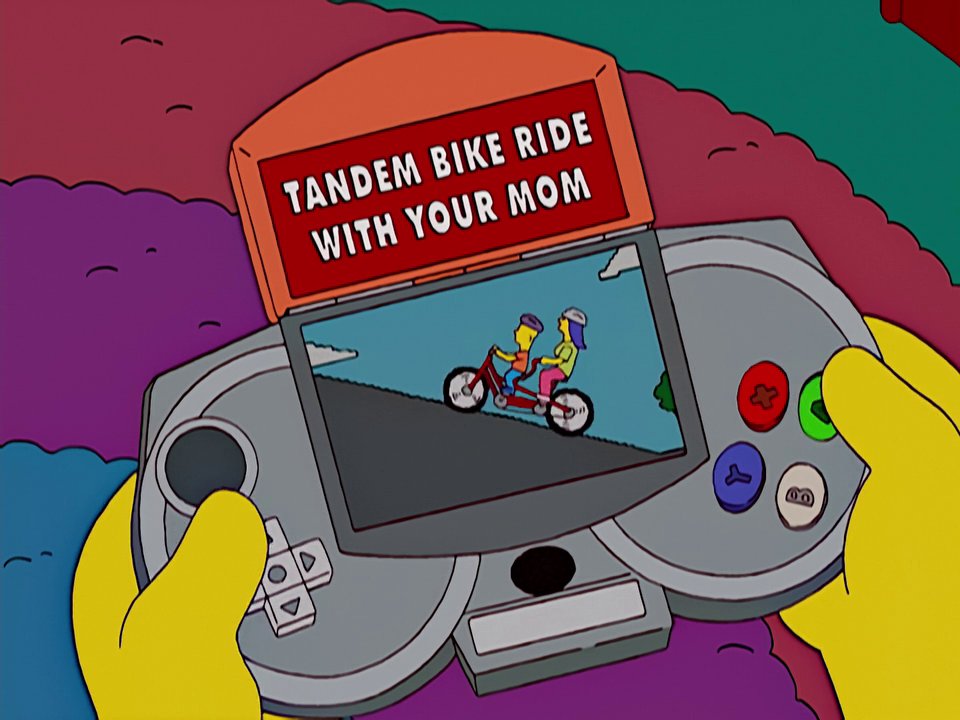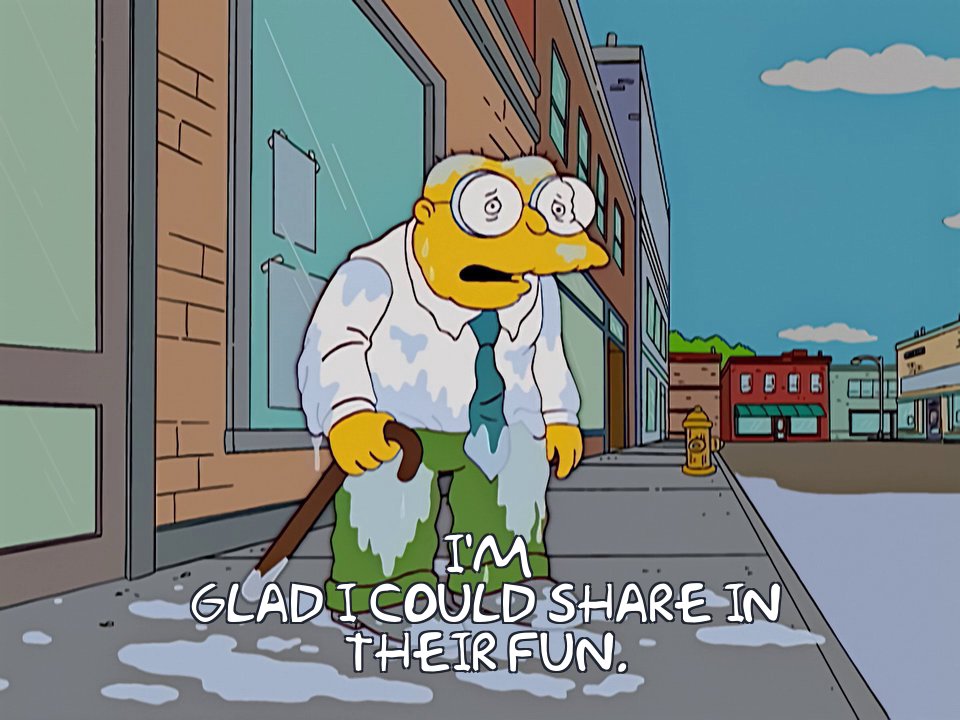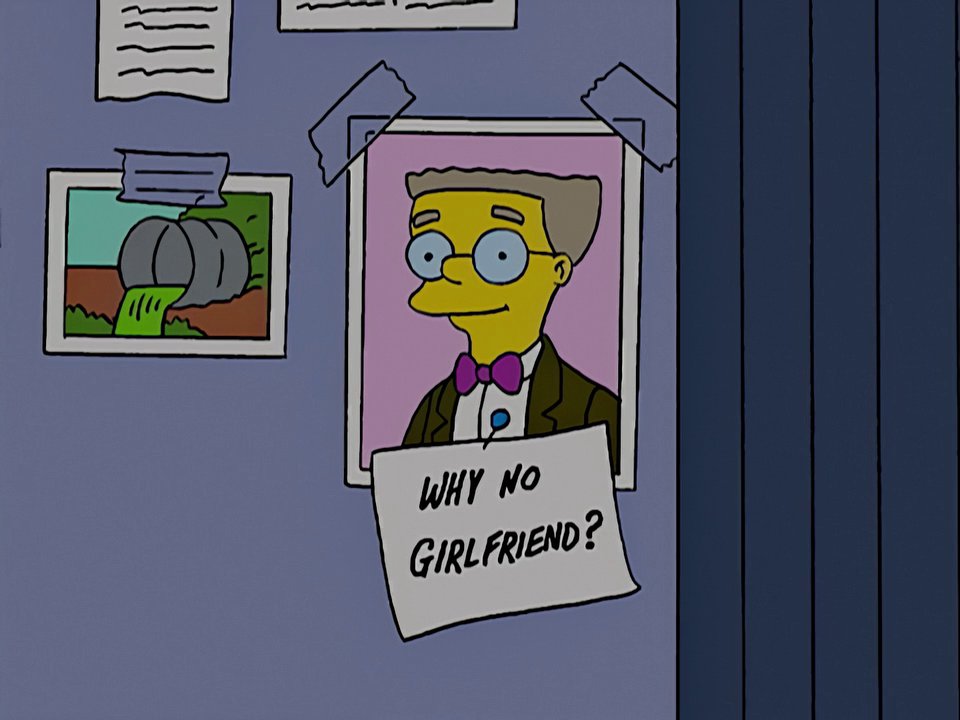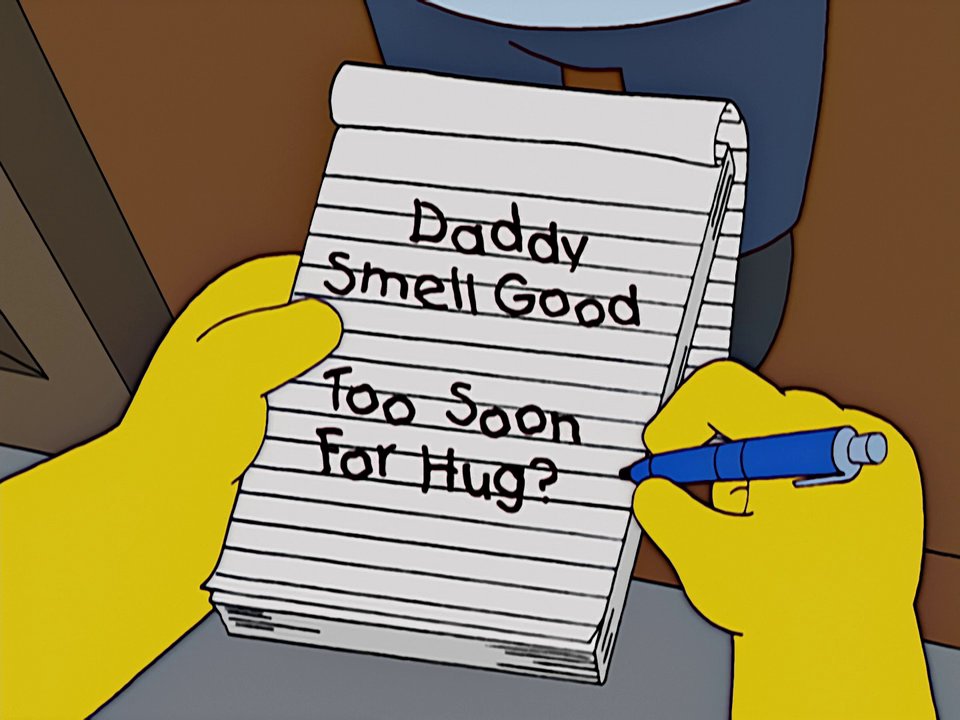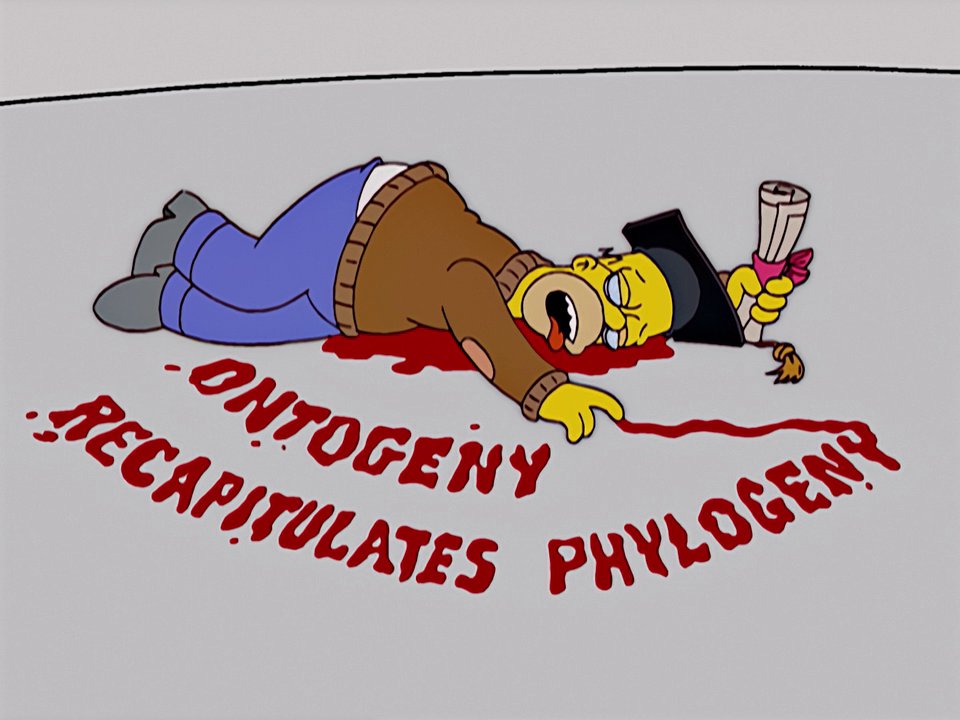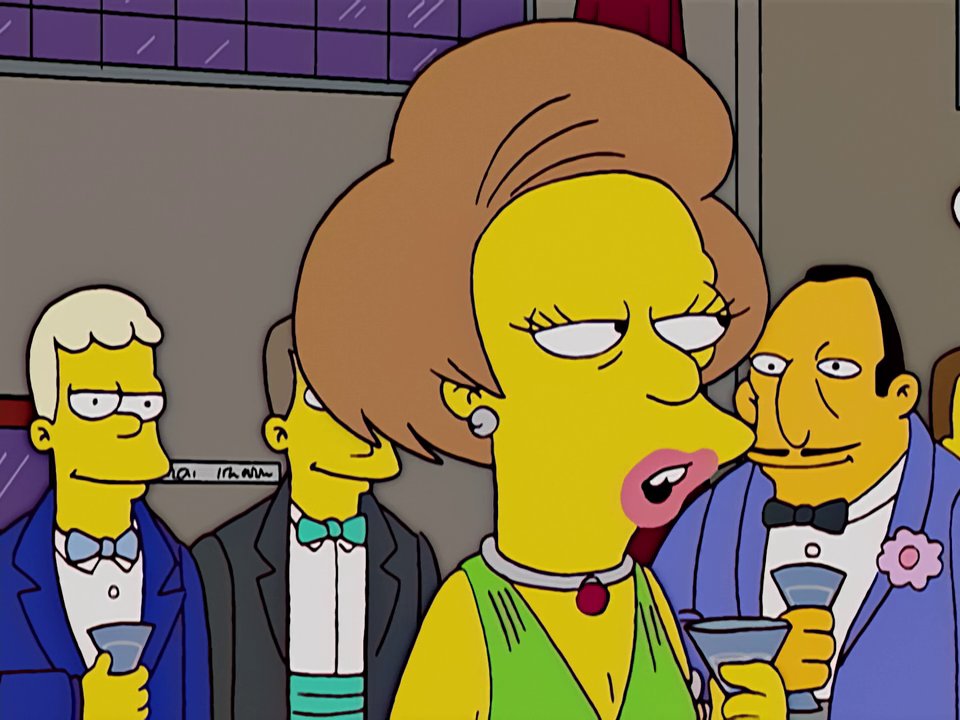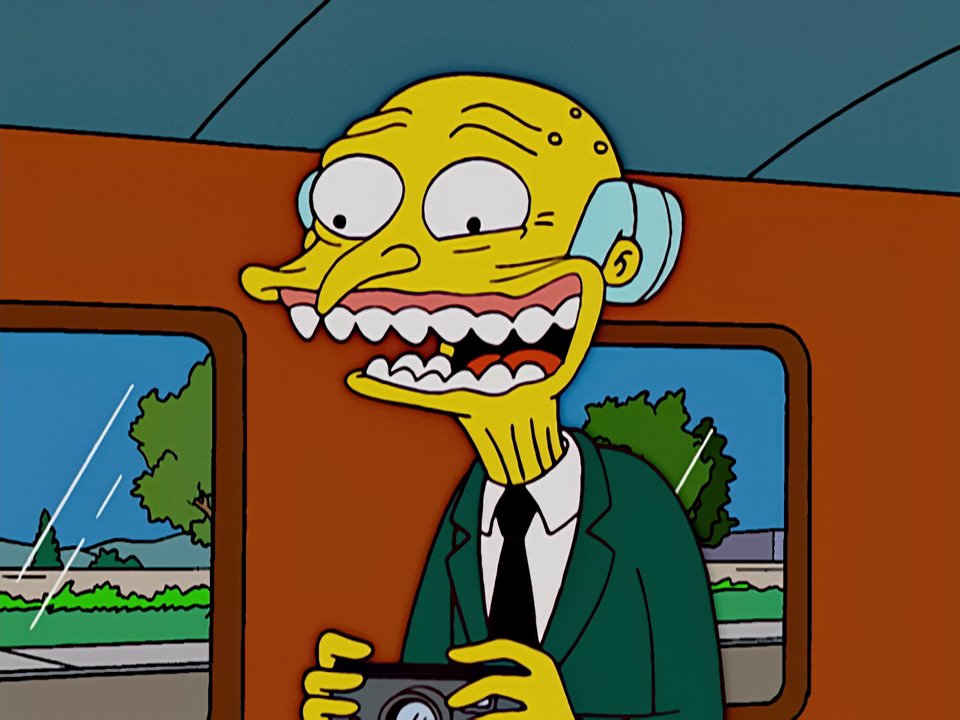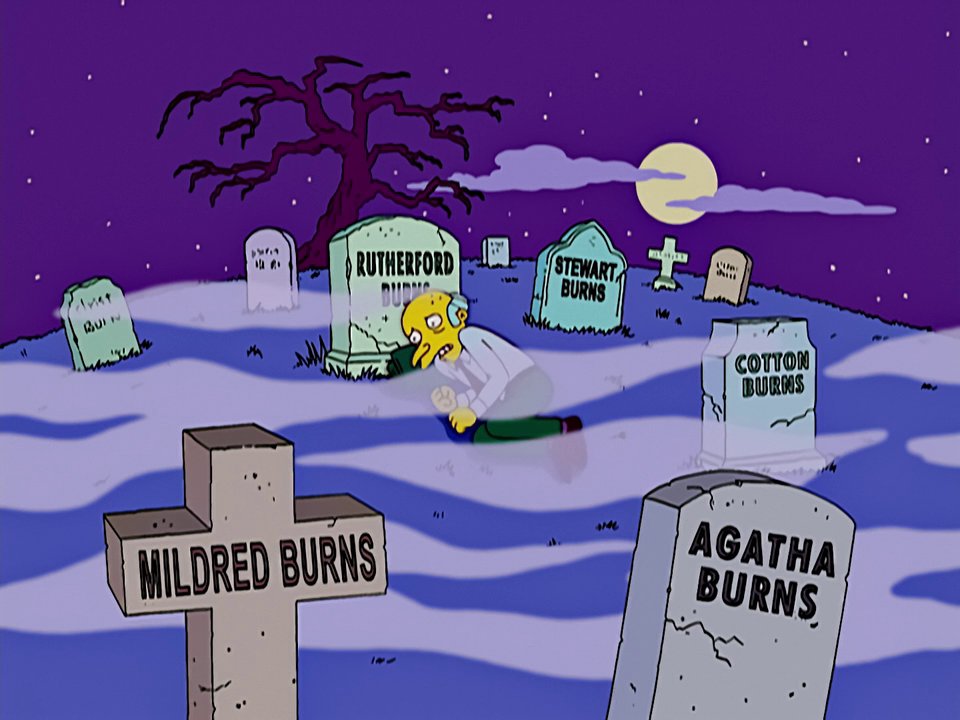Bonfire of the Manatees
Now onto season 17. When I'm finished this one... I'll be halfway done. Oof. That said, for all the show's flaws in this era, it is interesting to watch for when it is surprisingly funny or insightful. Mostly there are ideas that sound great but only partially pan out. Despite my complaints, I do feel most of the time the writers mostly aren't phoning it in... at least in any given episode's origin. However, the problems, as I mentioned too often is that 1) the characters often aren't likable and the episode usually doesn't justify it (there are lots of great works with unlikable characters but I want a reason to keep coming back) 2) "fuck, this aged poorly/I realize now this was never cool" 3) the episode doesn't make the time to explore it's ideas properly (or isn't capable of doing it well and concisely) and 4) simply falling into old traps. Sadly, this is an OK episode that also shows the series hasn't shaken $4.
In this episode, Homer's terrible gambling decision puts him in deep to the mob. But luckily Fat Tony is willing to forgive the debt... if Homer allows his house to be used in a porno film he's producing. Homer tries to keep Marge in the dark, Marge drives off to Florida to cool off but as she's about to give up and go home, she meets Caleb, a scientist looking to protect the manatees. Marge is drawn in by his passion and decides to join him. Homer and the kids track her down and though Marge accepts Homer's apology, she feels she can't return from her path. Homer decides to win her back by protecting the manatees from some bullies and after he does, Marge sees Homer is as vulnerable as the manatees and they return home.
This episode has a number of jokes I actually enjoyed. Yes, a lot of them are echoes of older bits but they are solid echoes that manage to give it enough energy to keep it enjoyable. But it's pretty obvious where the problem lies; once again, Homer makes a mess, makes a big gesture and there is no promise he's every going to internalize anything. The cycle continues. And the episode implies Marge recognizes the cycle and her journey is to get out of it and return to it. Like, the episode is very much shining a light on the problem but neither resolving it nor ironically commenting on it. Marge sees the manatee in Homer, a pathetic gross animal that cares. But the difference is the manatees might be thoughtless animals, they don't have her in a destructive cycle. It's an analogy that the last act hinges on and it instead makes Marge content as an enabler.
So again, no one learns anything. I know we are supposed to go to square one but the show shouldn't be so defeatist about that, at least without being clever of it. Marge had a good thing going with the manatees and despite the fact that the show wants to see it as affliated with her love for Homer, the manatee relationship is far healthier. A better ending would be Homer showing he loves and trusts Marge and either is willing to let Marge come back when he is ready, willing to pick up the slack for a while or staying with Marge for a while. And the next week, you can just imagine that Marge came back. It's no different than all the times the episodes end with Homer still fired from work again or Bart still expelled from school (which literally happened two episodes ago).
But despite my problem at the core of the episode, I actually found it fun to watch because of the joke telling. This isn't the series at the top of it's game for sure, but Homer, despite being in his destructive cycle mode, is slightly less jerkass, making stuff go down easier. The best jokes are often asides from the main story and as I said, a lot of them reflect the joke structures of episodes past, a lot of them are competent (it also helps that when they do give Marge some jokes, they are perfectly Marge). Alec Baldwin is also in the episode, doing a very good straightman bit. Alec is pretty good with humour, I admit, though it does bother me knowing he's an ass in real life apparently. I'm also not prepared to weigh in on his involvement on the recent "on the set" shooting, as it seems while he has partial responsibility, there was definitely failures on multiple fronts and levels for that to be able to happen. But yeah, the freshness of that tragedy sure makes that weird.
Other jokes:
I think the squalor of Santa's village is good but the funniest part to me was sad Santa reading Tom Clancy's Op Center and casually implying he is dying to a child.
"I'll run the soundboard!"
"And I'll perform in the sex scenes!"
From what I hear of the porno industry, Lenny was the one who made the better call.
"How could you allow this, in the room where we do puzzles."
"We're having lasagna and caesar salad."
"DON'T LAUGH, THEY'RE DOING THE BEST THEY CAN!"
"But we don't have an outhouse."
"My recording studio!"
The "outhouse" joke's been done and it's combined with "farmer into surprisingly metropolitan thing" but it's still funny to me.
Other notes:
Unless I missed something (as I often do), the episode is very unclear how the other Simpsons learned Marge was in Florida. It also sort of oblique that's where it takes place beyond references to it being sort of in the South.
It wasn't funny but I did think the nature of the Professor Pigskin scam was interesting.
Why didn't Homer just go WITH his family while the porno is being shot. Or even take short trip out of town and then have one of his dumb friends make sure things are at least surface level auspicious looking.
"I would do anything to protect another manatee, except harm another manatee."
"But what if by harming a manatee, you save two manatees. But before you answer, consider this; the first manatee is pregnant."
After some shitty rhyming parody names, this episode has some great "terrible" restaurant names: Skobos, Dimwillie's and Burger Plate.
I love how happy the manatee looks in the last gag.
